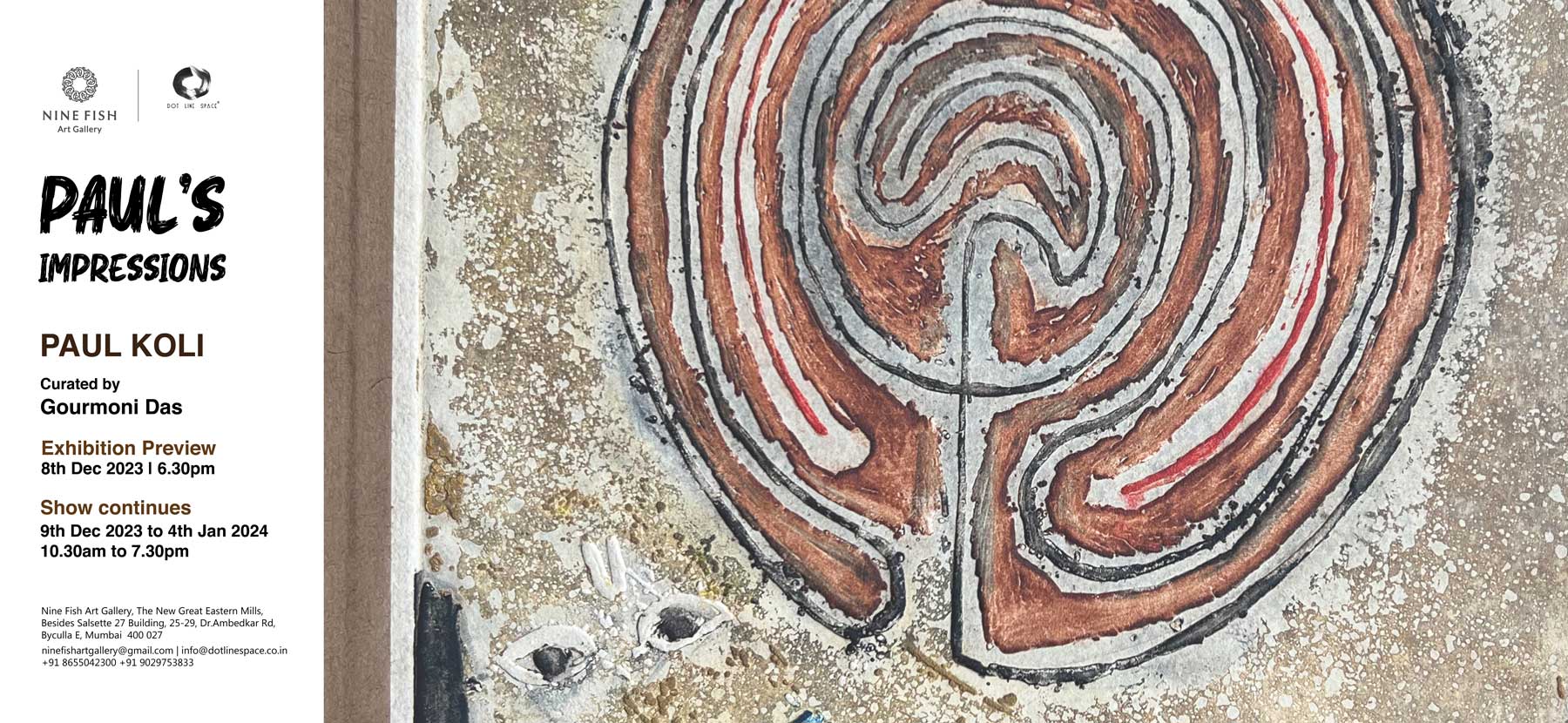To me, as a curator, one of the great fascinations is to visit the studios of artists and observe how the studios are set up and how the artists organize their individual spaces. It is always interesting to try and study how these spaces inspire the artists and how formative the spaces are in the works that the artists make. Paul Koli’s has been one of the most interesting studios to visit. For when it comes to printmakers the studios have a different layer of interest for me. Printmaking involves many steps, an involvement of techniques – linocuts, etchings, the use of chemicals etc, etc. – the long arduous processes of making and remaking, all being infused and informed by the smells, the sounds, the colours of the studios. The echos and interruptions of daily life, the sounds of the press, the rolling pin, wet paper, and so on, all penetrating the artist’s senses and thus the works themselves. The artist’s connections with the studio and the studio’s connections with the works – formulating a microcosmic world of creativity and aesthetics.
Paul Koli has always had a deep passion for poetry and language, and has constantly explored their power to hold and to convey emotions. He often suggests that his journey to the visual arts has been through the world of poetry – a delicate, perhaps deliberate – movement through otherwise unrelated mediums, coding and texturing his works in complex ways. Prof. V. M, Sholapurkar, one of Koli’s earliest critics, mentions that Kohli’s entry in The Sir J.J. School of Art was a ‘subtle’ and ‘hesitant quasi-curricular expedition into the possibility of print-making’, as was his encounters with the Dean of that time, V.B. Parab. Koli immersed himself into a deep involvement with materials, understanding their materiality and their transformative qualities technically and aesthetically. He was also immensely attuned to world history and politics and that, with his love for the logos, deepened his works as he textured them with his layered understandings. In a recent conversation with him, I was particularly taken up by his use of the phrase “the madness of knowledge”, suggesting both his unending desire for knowledge and the intellectual and emotive complexities that such polyphonous voices create in our minds.
Standing before his works we observe not only each work delving into the art of print-making itself but carrying a complex, albeit aesthetically filtered, awareness of the larger world surrounding him.

